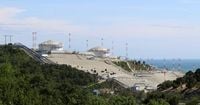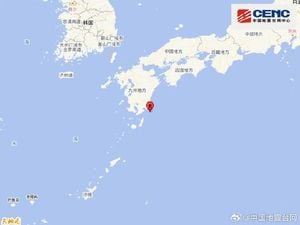Russia has implemented new restrictions on its oil export routes, significantly impacting its operations at the Novorossiysk port, a critical hub for Black Sea oil exports. On April 2, 2025, the Russian pipeline monopoly Transneft announced a 90-day suspension of operations at loading berth 8 of the Novorossiysk Commercial Sea Port (NCSP), following a snap inspection by the Federal Agency for Transport Supervision. This decision came just a day after the temporary shutdown of two of three moorings at the Caspian Pipeline Consortium (CPC) terminal, which is vital for transporting oil from Kazakhstan.
The Federal Agency for Transport Supervision initiated these inspections after an oil spill incident in the Kerch Strait in December 2024. According to Transneft, "A temporary ban on operations has been imposed on oil loading berth 8. NCSP has been ordered to eliminate all identified violations by June 30, 2025." This berth, typically utilized for low-sulfur diesel tankers and smaller vessels, has not been active since February 2025, suggesting that the immediate impact on Russian oil exports may be minimal.
Despite the limited use of berth 8, analysts are concerned about the broader implications of the CPC terminal's restrictions. The CPC terminal is crucial for Kazakhstan's crude exports, handling a significant volume of oil from major fields operated by international firms, including U.S. supermajor Chevron. The closure of two moorings—SPM-1 and SPM-2—on April 1, 2025, is expected to have a substantial impact on Kazakhstan's oil exports, which are integral to its economy.
As the world's second-largest oil exporter, Russia produces approximately 9 million barrels of oil per day, accounting for nearly 10% of global production. The ongoing geopolitical tensions, particularly related to the conflict in Ukraine, have prompted U.S. President Donald Trump to express dissatisfaction with Russia's actions and threaten secondary tariffs on buyers of Russian oil. The Kremlin has attributed the recent restrictions on the CPC to Ukrainian drone attacks on its infrastructure, further complicating the situation.
Ukrainian President Volodymyr Zelenskyy reported that a Russian drone struck an energy substation in the Sumy region, while artillery fire damaged a power line in Dnipropetrovsk, affecting nearly 4,000 consumers. These developments underscore the escalating tensions in the region and their potential impact on energy markets.
In the wake of these restrictions, oil markets have reacted with volatility. Brent oil prices have shown signs of recovery, driven by the anticipation of tighter supply due to the halted export capacity in the Black Sea. As traders monitor the situation, forecasts suggest that if Brent oil can surpass the $75.00 per barrel mark, it may test resistance levels between $77.00 and $77.50.
While the immediate effects of the berth 8 suspension may be limited, the broader context of Russian oil exports and the ongoing geopolitical tensions cannot be overlooked. The situation remains fluid, with both Kazakhstan and Chevron affirming that their oil flows via the CPC pipeline have not been interrupted as of the latest reports. However, industry sources indicate that buyers are awaiting a revised loading program for April, creating uncertainty in the market.
As the situation develops, the implications for global oil supply and pricing remain to be seen. The restrictions on the Novorossiysk port and the CPC terminal highlight the fragility of energy supply chains in the face of geopolitical conflicts and environmental concerns. With Russia's oil exports under scrutiny, the international community will be watching closely to see how these developments unfold in the coming weeks.
In conclusion, the recent restrictions imposed by Russia on its oil export routes signal a significant shift in the dynamics of global oil markets. As the country grapples with internal and external pressures, the ramifications for oil prices and supply chains will continue to evolve, making it a critical area of focus for energy analysts and policymakers alike.







